Cold Climate Heat Pumps: Advanced Heating for Extreme Weather
By Travis Baugh
Reducing reliance on fossil fuels, including natural gas, and increasing reliance on “clean” sources of energy are all parts of the decarbonization equation. For homeowners in cold climates where gas or fuel oil heating dominate the indoor comfort market, going all-electric can be a cause for concern. We get it.
Cold climate heat pump technology is designed to efficiently heat your home even in extreme cold, with systems capable of operating effectively in outdoor temperatures as low as -22° F. Unlike traditional heat pump systems, which often struggle to maintain efficiency during frigid conditions, heat pumps can still provide consistent warmth while using less energy. These advanced heat pumps work by extracting heat from the outdoor air, even at subzero temperatures, offering reliable performance without sacrificing comfort. Additionally, many of these systems are all-electric, providing a clean and efficient alternative to gas-powered heating systems for colder regions.
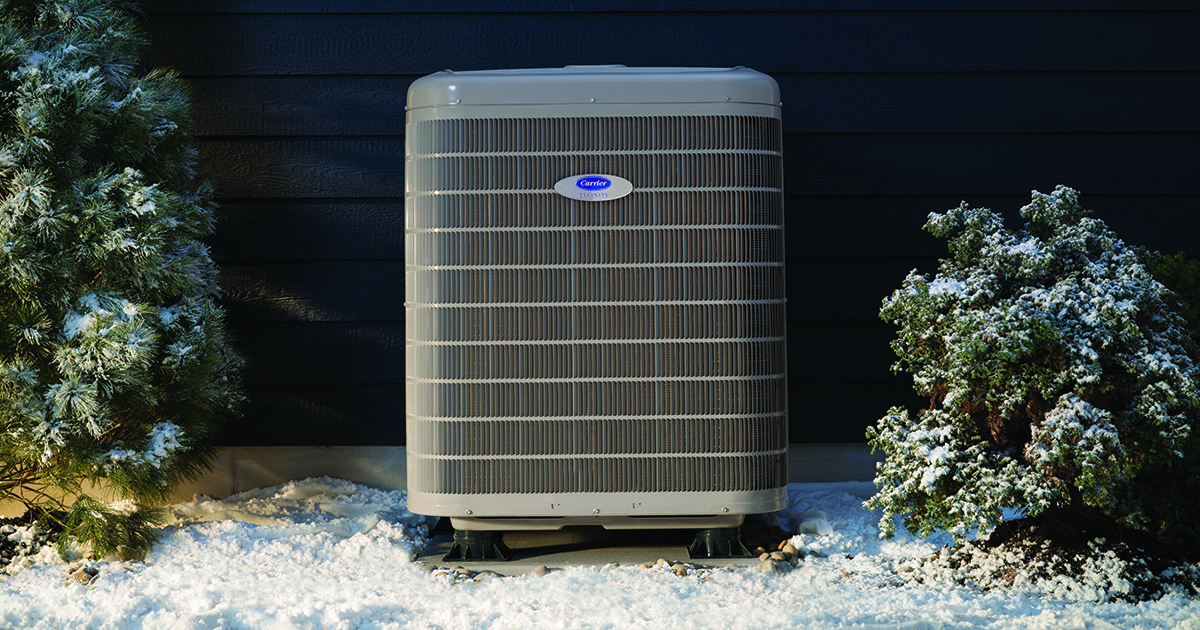
How Cold Climate Heat Pumps Work
A versatile year-round comfort system, a heat pump can both heat and cool your home by extracting heat energy from the surrounding environment and moving it to another location. Heat pumps work by extracting heat from the outdoor air, even in cold weather, and transferring it indoors to efficiently heat your home. Modern technology allows heat pumps to continue operating effectively at extremely low temperatures, with many systems capable of performing down to -22°F while using less energy than traditional heating systems. These versatile systems not only efficiently heat your home in the winter but can also cool your home during warmer months, making them a reliable year-round solution. Learn more about what is a heat pump .
Do Heat Pumps Work In Extreme Cold Weather?
Traditional heat pumps are designed for more mild climates and are not very efficient during extremely cold winter temperatures (below 5° F) and rely upon an auxiliary heating source during those times. Carrier cold climate heat pumps are an option you can warm up to, even in areas with more severe climates historically served by fossil fuel heating systems.
Cold climate heat pumps are specifically engineered to work in cold climates by efficiently extracting heat from outdoor air even in extreme cold. Unlike traditional heat pumps that may struggle in temperatures below freezing, these advanced units are capable of operating efficiently down to -22° F, maintaining reliable performance without a loss of heating power. They continuously provide warmth, unlike traditional heat pump systems, which can lose efficiency as the outdoor temperature drops. This makes cold climate heat pumps an ideal solution for homes in colder regions, offering an energy-efficient alternative to gas or electric heating systems, even in the harshest winter conditions.
Cold Climate Heat Pump Benefits & Performance Features
- Cold climate heat pump technology that allows for installation in all regions and provides warm, energy-efficient heating even when it’s below freezing outside with some Carrier models operating down to -22° F
- Higher energy efficiency – up to 22.0 SEER2 during cooling and up to 10.5 HSPF2 during heating with properly matched equipment
- Consistent temperature in the home for greater comfort with fewer up and down swings during use
- Potentially eligible for local utility rebates and federal tax credits based on the Inflation Reduction Act of 2022
- Enhanced humidity control throughout the year – during both heating and cooling operation
ENERGY STAR® Cold Climate Heat Pump Requirements
ENERGY STAR® Cold Climate heat pumps must meet rigorous performance standards to ensure they can efficiently operate in cold climates. These systems are required to perform effectively at 5°F, as tested by the Department of Energy, to demonstrate their ability to efficiently heat homes even in freezing temperatures. Additionally, they must pass a Control Verification Procedure to confirm that the system’s controls and components function properly in cold weather, ensuring reliability and comfort for homeowners. Meeting these standards is crucial because it guarantees that homeowners can rely on their energy-efficient heat pump system to perform in the toughest winter conditions while keeping energy costs low. Learn more about ENERGY STAR® and energy savings

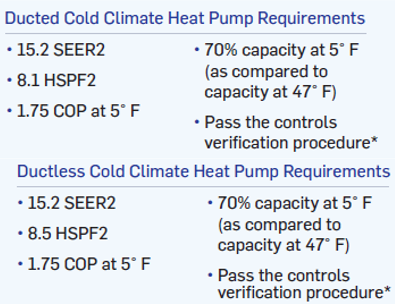
* Control Verification Procedure – This procedure is now required for all HVAC manufacturers. We must verify that the reported performance of our heat pumps at 5° F is how the unit will perform in the home with a native control (either a standard thermostat or an Infinity® System Control).
CEE Cold Climate Heat Pump Performance Tiers
CEE, or the Consortium for Energy Efficiency, is the U.S. and Canadian consortium of gas and electric efficiency program administrators. CEE works to accelerate the development and availability of energy-efficient products and services for lasting public benefit. CEE uses tiers with established performance measures to set a nationally recognized definition of highly efficient products or services. Below are the CEE tiers for highly efficient heat pumps that perform well in cold climates.
The CEE tiers categorize cold climate heat pumps based on their performance and efficiency in cold weather. Higher tiers, such as Tier 1 and Tier 2, require systems to meet strict performance thresholds, including maintaining high efficiency at 5°F or lower, which directly impacts rebate eligibility and overall energy savings. Carrier models, such as the Carrier Infinity® 20 Heat Pump with Greenspeed® Intelligence, exceed these high standards, offering top-tier performance and ensuring homeowners receive maximum rebates for their energy-efficient heat pump system that can efficiently heat even in the most extreme cold.
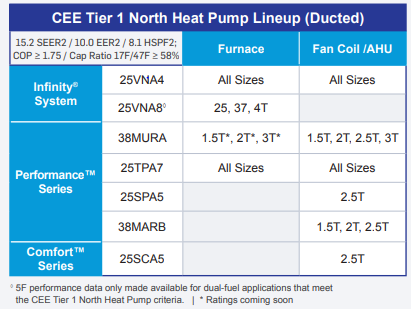
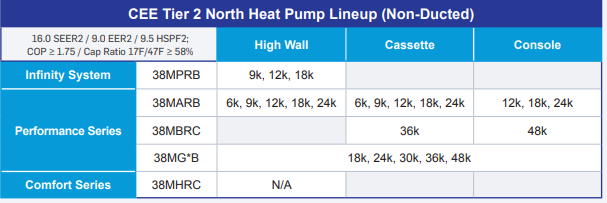
Alternative Cold Climate Heating Solutions
For homeowners in extreme cold, alternative heating solutions like dual-fuel systems and crossover systems provide the flexibility of a heat pump system paired with a gas furnace for seamless efficiency. These crossover systems can efficiently heat in temperatures as low as -22°F using the heat pump and automatically switch to natural gas when needed, ensuring reliable warmth in the coldest conditions. With the ability to operate in a wide range of temperatures (-22°F to 122°F), these systems are designed to work in cold climates while optimizing energy use and maintaining consistent indoor comfort. Carrier’s Crossover Solution provides a system that maintains the traditional ducted heating and cooling characteristics while leveraging elements of ductless technology.
Dual-Fuel Systems: Cold Climate Performance
Dual-fuel systems combine a high-efficiency heat pump system with a gas furnace to deliver optimal performance in extreme cold. An Infinity® Variable-Speed Heat Pump With Greenspeed® Intelligence delivers up to 23 SEER2 cooling and up to 10.5 HSPF2 heating efficiencies with efficient performance down to -15° F exterior temperature. With efficiency ratings of 23 SEER2 and 10.5 HSPF2, these systems can efficiently heat homes down to -15°F, automatically switching between the heat pump and furnace based on outdoor temperatures for maximum energy savings. When temperatures are mild, the heat pump provides efficient heating, but as temperatures drop, the system seamlessly transitions to the gas furnace to maintain comfort and performance without excessive energy consumption.
Crossover Heat Pumps: Ultimate Cold Climate Performance
Carrier Crossover Solutions combine the best of both ductless and traditional HVAC technology by pairing a ductless heat pump with a furnace for optimal comfort in cold climates. The ductless heat pump provides energy-efficient heating and cooling for specific zones or rooms, while the furnace serves as a backup heat source during extreme cold when temperatures drop too low for the heat pump to operate efficiently. This combination offers flexibility, energy savings, and consistent warmth, making it an excellent solution for homes without existing ductwork or those needing targeted heating in addition to a whole-home furnace system. This means you get the quiet operation and small footprint of ductless products, with the performance and dual-fuel capability of traditional units at temperatures from -22° F to 122° F. Learn more about crossover solutions.
Meeting the DOE Cold Climate Heat Pump Challenge
Carrier recently participated in the Department of Energy’s Cold Climate Heat Pump Challenge to accelerate the development of cold climate heat pump technologies. To meet the DOE CCHP requirements, a heat pump must have maintained 100% capacity at 5° F as it does at 47° F. In addition, qualifying equipment must also be grid interactive and use a refrigerant with a Global Warming Potential (GWP) of no more than 750. Learn more about Carrier's completion of the Department of Energy’s Cold Climate Heat Pump Challenge.
Expert Cold Climate Heat Pump Installation & Support
In cold weather, reliable heating is about more than just comfort – it’s a necessity. Innovations in gas-free heating have created new ways to deliver premium performance. Carrier cold climate heat pumps are a great alternative to traditional gas HVAC systems for cold climates, delivering efficiency and energy savings without compromising comfort.
To ensure your cold climate heat pump system operates at peak performance—even in extreme cold as low as -22°F—it’s essential to have your heat pump installed by a professional. Expert cold climate heat pump dealers understand the unique aspects of cold climate heat pump technology and how it works in cold climates, ensuring proper sizing, installation, and calibration for efficiently heating your home all winter long. Working with your local Carrier dealer guarantees reliable comfort, maximum efficiency, and long-term saving. Find a qualified cold climate heat pump dealer to get started today.
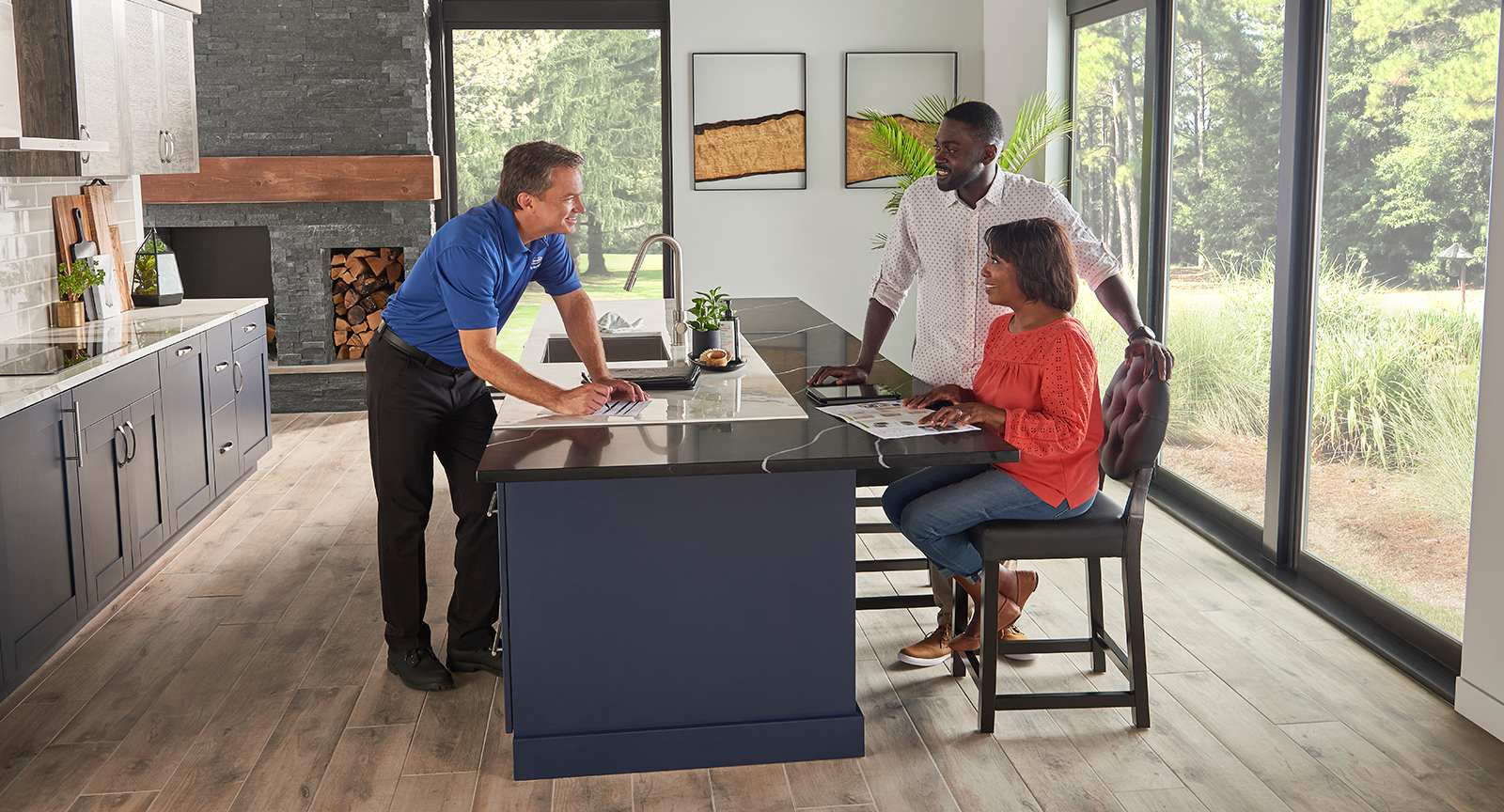
Frequently Asked Questions About Cold Climate Heat Pumps
Learn More About Heat Pumps
- Find a heat pump near me
- Get information about the cost of a heat pump
- Find out “how does a heat pump work?”
- Learn the difference between heat pumps vs air conditioning
- Let's start with the basics - what is a heat pump?
- Learn about heat pump efficiency and SEER Ratings
- 3 reasons to consider a heat pump
- Heat Pumps: A Sustainable Comfort Solution
- Discover heat pump tax credits
- Learn about heat pump installation
- How much will a heat pump increase my electric bill?
- Learn if you need a 3 ton heat pump
- Discover what an air source heat pump is
